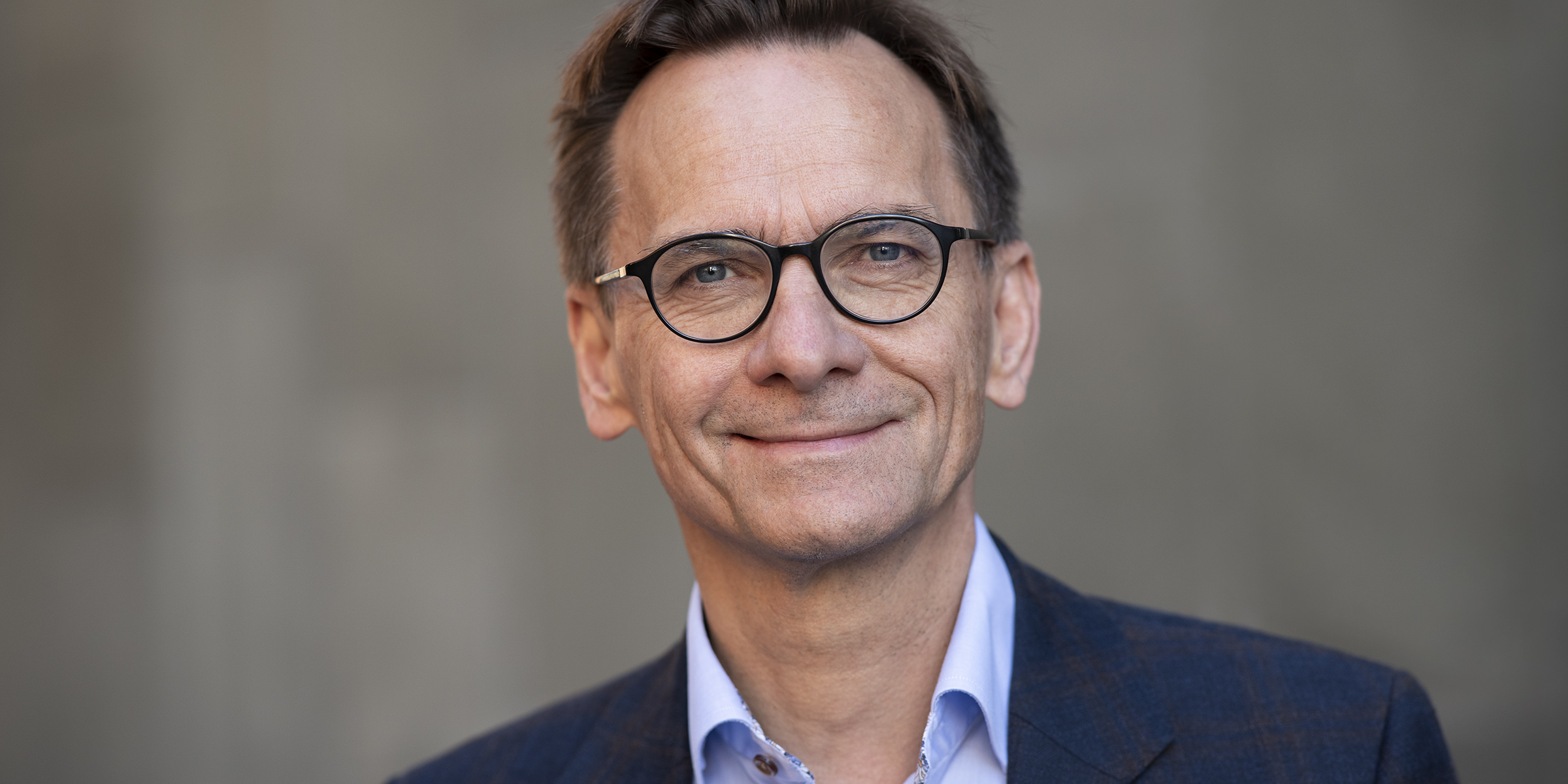
Rector Summarizes the Spring
Rector Christen Krogh here summarizes the activities, work, and impressions from the spring months.
Dear colleagues,
We have left behind three spring months since the last summary, and a lot has happened since then.
Demanding conditions continue around the world. The warfare and the terrible situation for the population in Gaza persist and Russia has stepped up attacks in Ukraine.
In early May, OsloMet received a visit from Viktor Yushchenko, former President of Ukraine and one of the leading figures of the Orange Revolution in 2004, which was supposed to bring Ukraine closer to Western Europe. Yushchenko gave an interesting guest lecture where he provided his analysis of the situation in Ukraine and the future prospects of the nation.
It has been an active spring in the sector. In April, the Ministry of Education and Research presented both parliamentary reports on admission to higher education and on professional education. Both reports have also been processed in the Parliament this spring. Most of the additional points to get into higher education will now be removed. At the same time, the grade requirements for nursing education are adjusted, and the grade requirements for teacher education are eased.
In connection with the presentation of the professional report, the Dean of the Faculty of Health Sciences, Marit Kirkevold, and I argued in Klassekampen that the Government's focus on "de-academizing" education is unfortunate. OsloMet took the debate further in a breakfast meeting where we invited politicians from the Conservative Party, Labour Party, and Socialist Left Party to share their views on how we should be able to educate enough nurses, teachers, and engineers. We have followed up the Education and Research Committee in Parliament with input for their treatment of the parliamentary reports, and several of our inputs were touched upon in the committee's remarks.
Otherwise, we find that breakfast meetings with knowledge sharing create good meeting places. Earlier in May, we had a breakfast meeting where we talked about how we can best use artificial intelligence in higher education and research, on the occasion that OsloMet has got its own policy for using AI.
Prime Minister Jonas Gahr Støre also touched on technology when he gave a guest lecture for students at the Business School at OsloMet at the end of April. Støre talked about the three main challenges society faces today, with an aging population, the climate crisis, and energy challenges. He was clear that education and competence are crucial in finding solutions.
And of course, Minister of Education Oddmund Hoel agreed when he presented this year's applicant numbers for higher education at OsloMet on April 26 along with the director of the Directorate for Education and Training, Sveinung Skule. Society has a great need for competence going forward, and never have so many applied for higher education as now. Over 14,000 had OsloMet as their first choice for bachelor's degrees and lower degrees, and especially for education within health, economics and management, and technology, applicants are flocking. Especially our Business School is popular with two studies on the national top ten list of most popular studies. It was also great to see that the number of male applicants for nursing education in Oslo increases by almost 50 percent.
Campus Development
In April, the newly renovated university library opened up in Pilestredet. It has really become nice and inviting for our students, both as a study place and a meeting place - something we see clearly on the visitor numbers.
Spring has also included a lot of dialogue with our collaboration municipalities on Romerike and work with the upcoming campus in Lillestrøm. The concept selection study for the new campus was ready at the beginning of April, and the board unanimously decided to send this to the Ministry of Education and Research for approval. Statsbygg concludes in its final report that it is socio-economically justifiable to move operations to Lillestrøm city center and assesses three of the four proposed campus alternatives equally.
In order to choose between the different concepts, we started work in April to come up with academic content for the campus in Lillestrøm so that the board can make a decision at the end of October. The work ensures good participation, and we have already had a positive dialogue conference with Lillestrøm and the region around, and citizen squares on both campuses where students and staff could come up with their input both verbally and digitally.
I would also like to highlight a new research initiative at OsloMet that started in the spring, which will help to include young people in education, work, and social life. The initiative springs from the social mission the government presented in the Long-term plan for research and higher education in 2023 which deals with the inclusion of children and young people, a theme that hits OsloMet broadside.
Finally, I would like to highlight that we arranged a great family day for the first time at OsloMet at the end of April. Here, employees could bring their families and show off their workplace from a whole new side.
Now we are into the first summer month, and we have a few weeks left before vacation. This week there is a digital general meeting 3 June for employees, where the management talks a bit more about the progress of the work with content for the new campus in Lillestrøm and other things that are happening.
And OsloMet has employees who were and who are on strike. This, of course, has consequences for our students and the operation in general. Keep an eye on our websites about the strike for updated information.
I wish everyone a few good weeks before the summer holiday arrives.
Best regards, Christen
(This text is translated using Sikt AI chat)




